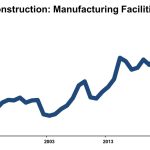As a successful entrepreneur with global aspirations, it’s natural to want to do business with the world’s largest economy. But gaining a foothold in the notoriously tricky U.S. market is far from easy. Here three U.K.-based company founders share the secrets of their successful business expansion into the U.S.
Life-changing coffee
Coffee company Change Please is a social enterprise that capitalizes on the world’s love of coffee and reinvests 100% of its profits into creating employment for those living on the streets, helping them get back on their feet by training them as baristas.
Launched in London in 2015, Change Please has since been established in France, Germany, Ireland and Australia. The scale of coffee consumption and homelessness made it a prime market for expansion. Still, as founder Cemal Ezel explains, the move was not without its challenges, not least the fact that doing business in every state is different.
He says: “You can’t just be a generic U.S. supplier. Every state is like a different country, not just in terms of legislation but also regional preferences and how organizations like to do business. Many want to keep it local, within their state. You can’t just be a generic U.S. supplier. So, how we are delivering impact is slowly, state by state.
In 2021 Change Please launched in Charlotte, North Carolina, and set up its first U.S. barista training center before rolling out in New York, where they recently signed contracts with companies such as Google and JP Morgan. A second barista training center will soon be opening in the city.
“The focus for Change Please U.S. is on supporting homeless women and children,” says Ezel. “Our corporate partners in New York buy our coffee, and 100% of the profits go into supporting these women, helping them to make a fresh start and find employment, for example, in law firms, tech businesses, and convention centers.”
Other barriers to expansion included the cost of employment in the U.S. – around 50% to 60% more expensive for each hire than in the U.K. – and a lower tolerance to risk among corporate entities in the U.S. “They don’t always want to be the first to try something different, but once the first adopters were on board, things moved quickly.”
Denver will be the next U.S. city to be targeted. “It has taken us almost 18 months to get to where we expected to be within the first two months,” says Ezel. “But it is a crucial market, and my advice to others looking to expand here is to understand state-specific preferences and cultural elements. It would help if you had expertise and knowledge in each local market to develop solid business relationships. That is the key to success in a market that is unlike any other in the world.”
Investing to scale up
U.K.-based proptech firm Landtech enables property developers to identify, assess and fund off-market development opportunities. On recognizing the scale of the U.S. housing crisis, in 2022, they took their tech solution, which creates efficiencies with buying land, Stateside.
Cofounder Jonny Britton says: “Where we dealt with around 300 U.K. councils, in the U.S., we are dealing with 19,000, which meant a complete tech stack overhaul and a new machine learning model. That investment came to about $10 million for our recent expansion.”
The venture is paying off. Landtech recently signed up the second largest U.S. housebuilder, which builds 100,000 homes a year, half the U.K. total. Britton adds: “It’s been a fun and engaging experience so far. They love the Brits and are naturally pro-business and therefore want to help. Oh, you also have to learn to love the Red Eye!”
Taking U.K. Search Stateside
Founded in London in 2011, global executive search firm TritonExec expanded to the U.S. in 2017, a crucial effort as part of its international growth, not least because of how the search market operates in that territory.
Cofounder Jonathan Morris says: “In the U.S., the ‘Big Five’ search firms dominate in a sophisticated and highly buoyant job market for search. The professional standards of these major players have trained the market to accept higher fees, with half payable up front, unlike the U.K., where a third of the fee is generally payable each step of the way. The U.S. dynamic is also supported by much shorter notice periods for directors, on average four weeks, compared with up to six months in the U.K. The U.S. market is robust and lucrative, and we wanted to be part of that.”
Their success was partly due to their decision to establish a physical presence in the U.S. that wasn’t just another office but was an actual ‘TritonExec’ office that became an extension of their established company culture and values.
“We achieved that by relocating one of our existing U.K. partners, who played a crucial role in hiring and onboarding our U.S. team. As we were hiring, growing, and establishing our U.S. network, we had individuals from our leadership team move back and forth between offices, which worked well.”
Questions over TritonExec’s size and reach presented another barrier to U.S. entry. “Our solution was to draw on the fact that most of our clients were global; we had previously served them in Europe, with a presence in the U.S.,” explains Morris. “Demonstrating case studies of successful hiring programs for client companies operating in the U.S. was enough to win over potential clients.”
Currently, 65% of their revenues come from the U.S. A key lesson to learn, says Morris, is not letting being on the ground be a barrier to US expansion. “It’s possible through a range of hybrid options, but the result is delivering a valued service and essentially keeping clients happy,” says Morris.
Read the full article here










